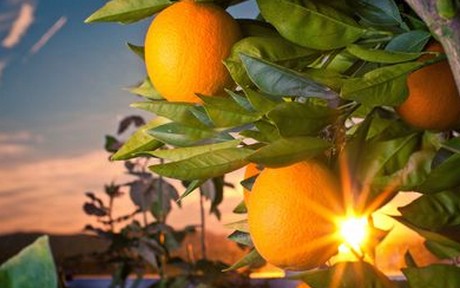THE European Union (EU) had post poned making a decision about whether South Africa had done enough to mitigate the spreading of a fungal disease called Citrus Black Spot, it said on Thursday.
poned making a decision about whether South Africa had done enough to mitigate the spreading of a fungal disease called Citrus Black Spot, it said on Thursday.
The European Commission’s Directorate for Health and Consumers (known by its French acronym DG Sanco) postponed the decision until its next meeting on May 26 and 27 that would decide if South Africa could keep its multi billion-rand European citrus market.
A statement from DG Sanco said that no agreement could be reached on mitigation measures for South African citrus fruit in Thursday’s standing committee on plant health. "The matter has been postponed for further discussion at the next meeting taking place on May 26 and 27 ."
SA Citrus Growers Association envoy for EU matters and market access Deon Joubert told Business Day that there was no ban by Europe on the South African crops.
South Africa is the world’s second-largest exporter of citrus fruit, such as oranges, lemons and grapefruit. The industry generates about $1.4bn of foreign exchange through exports.
During its peak-harvesting season from August to the end of October, it directly employs more than 120,000 people who support more than 1-million dependants.
South African exports about 600,000 tonnes of citrus to the EU every year. The bulk of it is oranges.
The EU imposed a temporary ban on South African fruit in November after some instances of Black Spot were found in shipments, but that was lifted in January.
Mr Joubert said the ban occurred after South Africa had completed its harvesting and export of its crop for last year and so it had no effect on foreign earnings. "We had a problem with the late harvest of Valencia oranges, the last crop to be picked and exported, but we have since put in place steps to mitigate that risk ."
Citrus Black Spot is a fungus that darkens areas of a fruit’s skin making it unsightly but it is not dangerous to humans. It also appears on the leaves of the plants.
 poned making a decision about whether South Africa had done enough to mitigate the spreading of a fungal disease called Citrus Black Spot, it said on Thursday.
poned making a decision about whether South Africa had done enough to mitigate the spreading of a fungal disease called Citrus Black Spot, it said on Thursday.The European Commission’s Directorate for Health and Consumers (known by its French acronym DG Sanco) postponed the decision until its next meeting on May 26 and 27 that would decide if South Africa could keep its multi billion-rand European citrus market.
A statement from DG Sanco said that no agreement could be reached on mitigation measures for South African citrus fruit in Thursday’s standing committee on plant health. "The matter has been postponed for further discussion at the next meeting taking place on May 26 and 27 ."
SA Citrus Growers Association envoy for EU matters and market access Deon Joubert told Business Day that there was no ban by Europe on the South African crops.
South Africa is the world’s second-largest exporter of citrus fruit, such as oranges, lemons and grapefruit. The industry generates about $1.4bn of foreign exchange through exports.
During its peak-harvesting season from August to the end of October, it directly employs more than 120,000 people who support more than 1-million dependants.
South African exports about 600,000 tonnes of citrus to the EU every year. The bulk of it is oranges.
The EU imposed a temporary ban on South African fruit in November after some instances of Black Spot were found in shipments, but that was lifted in January.
Mr Joubert said the ban occurred after South Africa had completed its harvesting and export of its crop for last year and so it had no effect on foreign earnings. "We had a problem with the late harvest of Valencia oranges, the last crop to be picked and exported, but we have since put in place steps to mitigate that risk ."
Citrus Black Spot is a fungus that darkens areas of a fruit’s skin making it unsightly but it is not dangerous to humans. It also appears on the leaves of the plants.





